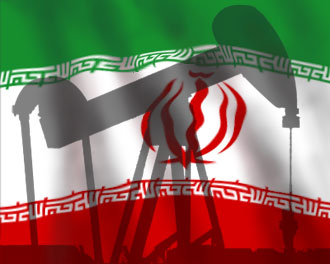Iran's oil exports dropped to their lowest level since October but are still set to narrowly surpass an agreed cap at the end of the month, data released by a top energy watchdog showed Friday.
An interim nuclear agreement between Iran and six world powers requires the Islamic Republic to keep its crude exports at 1 million barrels a day on average over the six months ending July 20.
According to the Wall Street Journal, in its monthly oil-market report, the International Energy Agency-which advises industrialized nations on oil policies-said Iran's oil exports, including crude and condensates, had fallen by 26% in June to 1.08 million barrels a day amid sharp cuts by its two largest Asian buyers. That low level had not been reached since October when it stood at 715,000 barrels a day, according to previous IEA data.
China has cut its Iranian oil imports by 36% in just two months to 510,000 barrels a day after building up its strategic reserves, the IEA said. India's oil purchases from the Islamic Republic have dropped 29% in the same period to reach 141,000 barrels a day.
Both Asian nations have showed strong appetite for Iran's crude as they tend to barter the commodity for their own goods such as rice or automobile spare parts because international sanctions generally make hard currency transfers to Tehran impossible. But the same sanctions have also forced those buyers to keep their average Iranian oil supplies constrained.
Still, Iranian crude exports-excluding condensates-stood at around 1.1 million barrels a day in the past five months, based on IEA data, about 100,000 barrels a day above the level agreed with six world powers in an interim agreement implemented on January 20. The deal allowed Iran to keep its crude exports unchanged and offered some limited sanctions relief in exchange for scaling down its atomic program.
Unless Iran's sales collapse this month, its six-month average will surpass the cap of 1 million barrels a day.
Washington's reaction to Iran's breaching the crude-exports cap has been muted, as it argues such shipments fluctuate on a monthly basis. Instead, the U.S. and five other world powers are focusing on a final resolution of the dispute with Iran, which has struggled to reach completion as a July 20 deadline nears.






